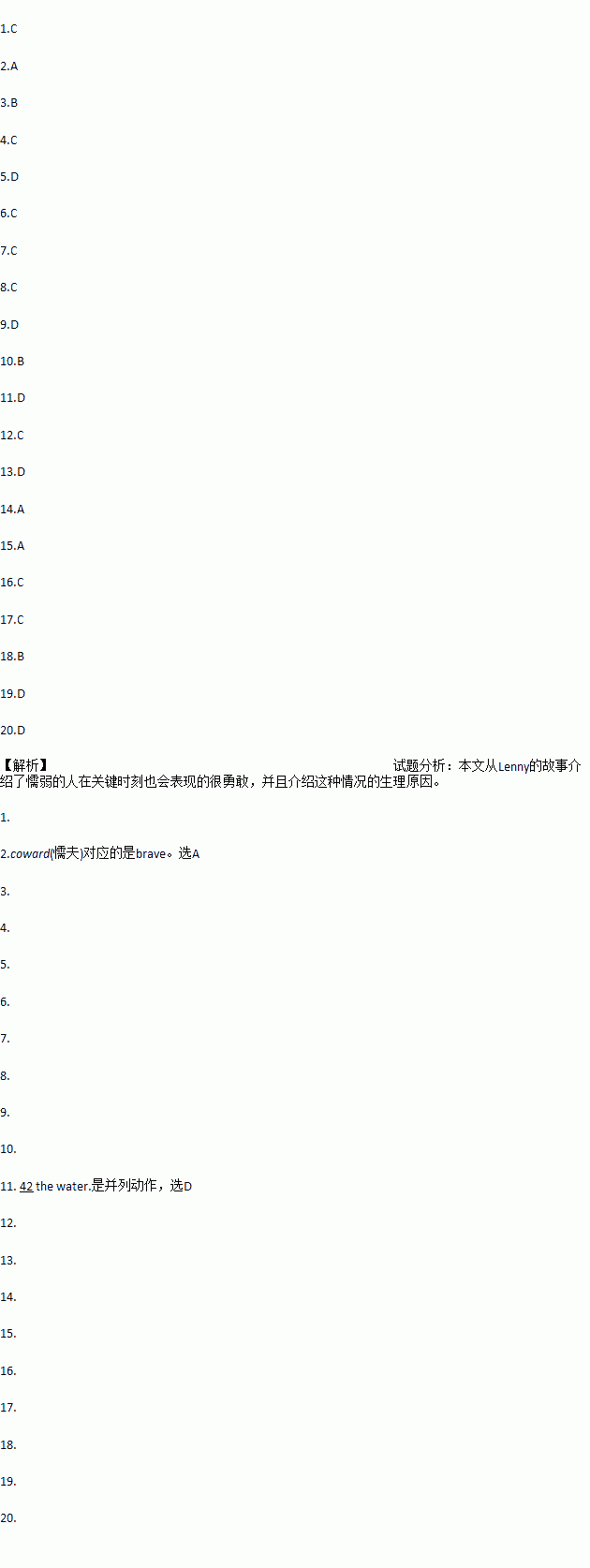题目内容
Are you a man or a mouse? When people ask this question they want to know ____ you think you are a _____person or a coward (懦 夫). But you will never really know the answer to this question ___ you are tested in real life. Some people _____they are brave but when they come face to face with real ____, they act like cowards. Others think of themselves as cowards, but when they meet danger, they act like ____ .
Lenny had always thought of himself as a ___ person. He got worried before examinations. He worried about his job and health. All he wanted in life was to be safe and healthy. ___, on January 15th, 2002, a plane crashed into the Potomac River in Washington. Lenny went to the river to see what was happening. He saw a woman in the ____water. Lenny did not feel afraid. He kept very ____and did a very dangerous thing. He jumped into the Potomac, ____ to the woman, and kept her head ___ the water. Seventy-eight people died that day. Thanks to Lenny, it was not ____.
When you are in a very ____ situation and feel afraid, the body automatically produces a chemical in the blood. The chemical is called adrenalin(肾上腺素). ___ adrenalin in the blood system, you actually feel stronger and stronger and are ____ to fight or run away. However, when you are absolutely terrified, the body can produce too much adrenalin. When this ___ , the muscles(肌肉) become very hard and you find you _____move at all. You are then paralyzed (使无能为力) with fear. This is ____when we are very frightened, we sometimes say we’re “petrified(惊呆的)”. This word comes from the Greek word “petros”, which means “stone”. We are ____ frightened that we become stonelike.
1.A. how B. neither C. whether D. either
2.A. brave B. real C. hard D. certain
3.A. when B. until C. after D. once
4.A. realize B. find C. think D. agree
5.A. life B. question C. mouse D. danger
6.A. soldiers B. mice C. heroes D. cowards
7.A. useful B. brave C. nervous D. terrible
8.A. So B. Therefore C. Then D. Actually
9.A. fresh B. poisonous C. warm D. ice-cold
10.A. nervous B. calm C. frightened D. excited
11.A. went B. helped C. spoke D. swam
12.A. in B. under C. above D. from
13.A. an accident B. a mistake C. seventy-eight D. seventy-nine
14.A. dangerous B. comfortable C. different D. favorable
15.A. With B. Without C. For D. Like
16.A. afraid B. unable C. ready D. anxious
17.A. gets B. disappears C. happens D. goes
18.A. needn’t B. can’t C. mustn’t D. shouldn’t
19.A. where B. how C. because D. why
20.A. really B. very C. such D. so
 阅读快车系列答案
阅读快车系列答案
